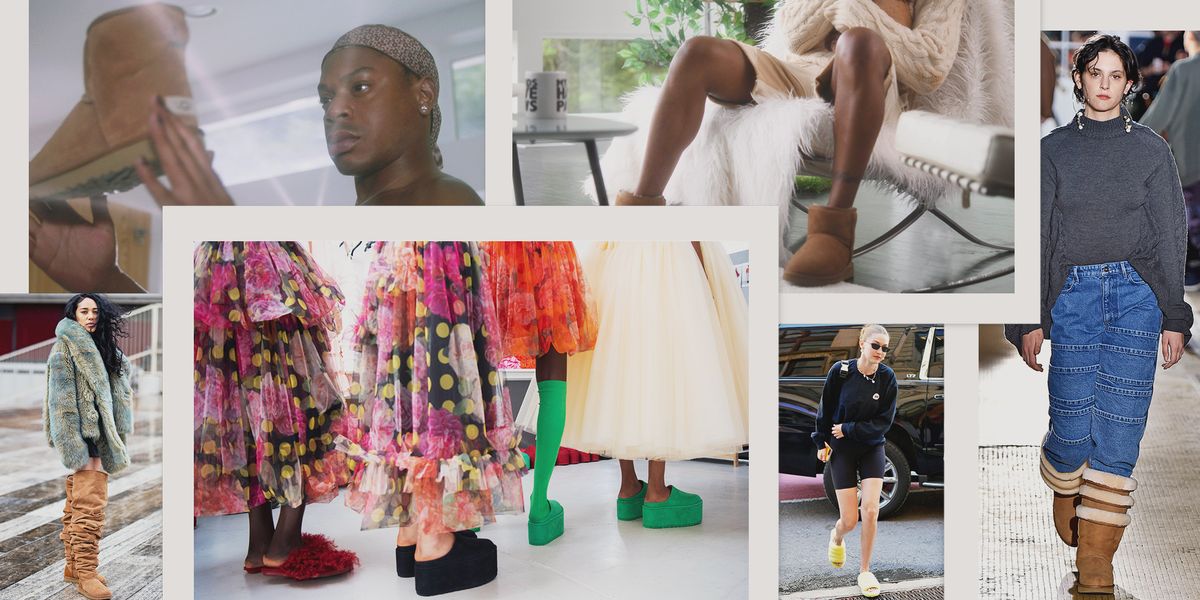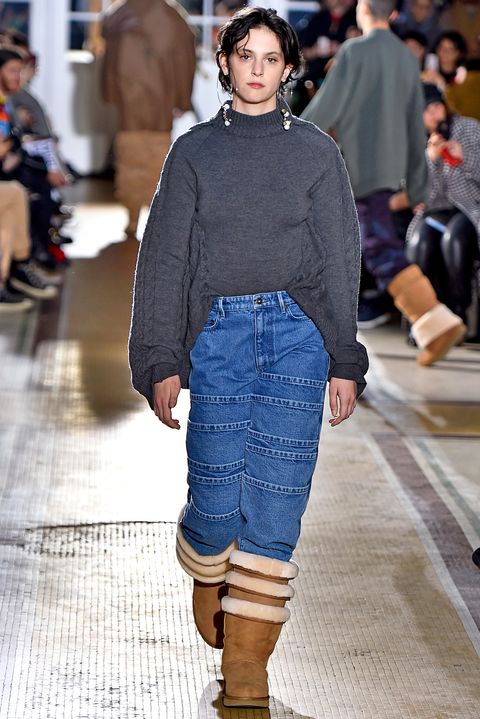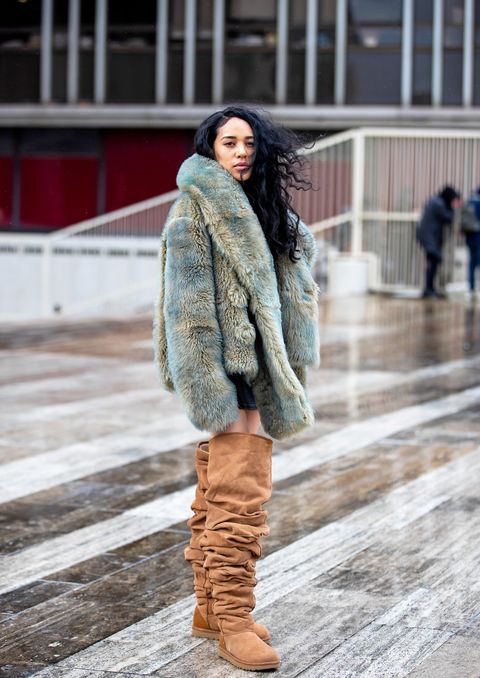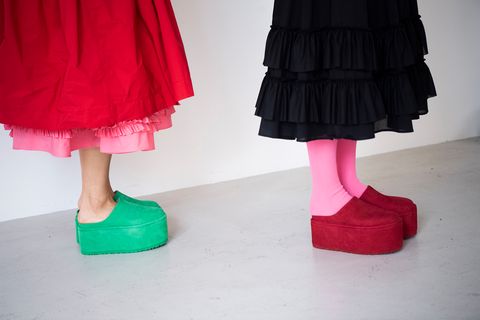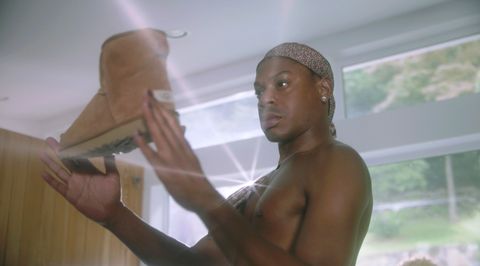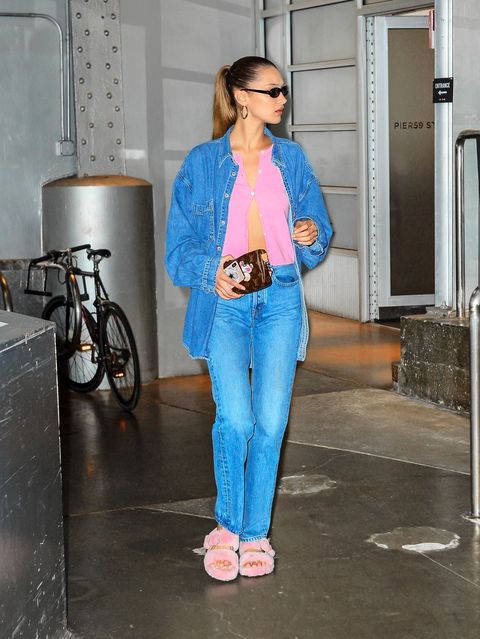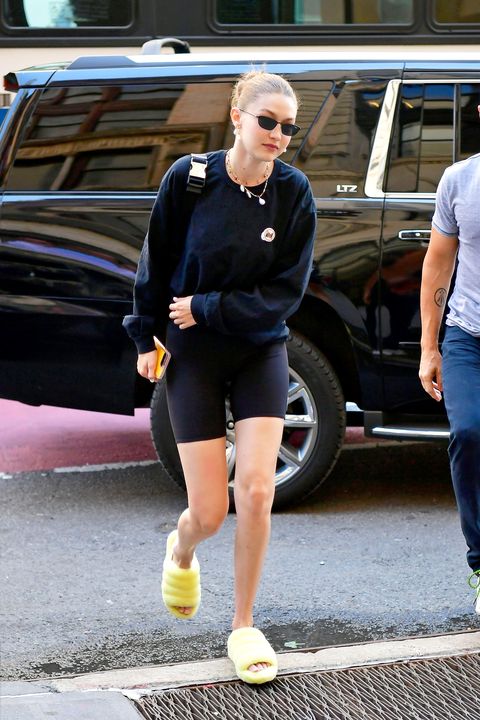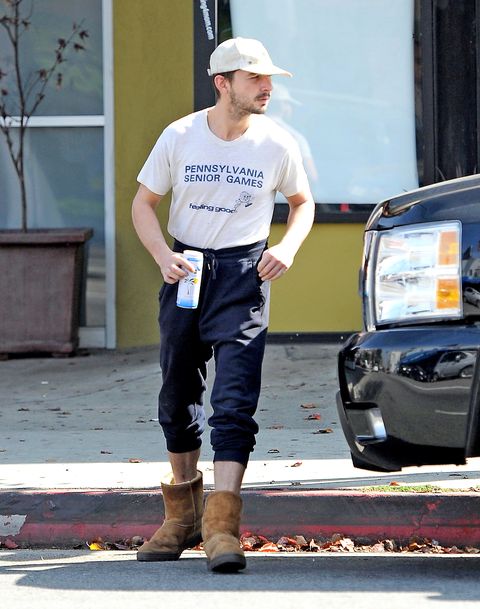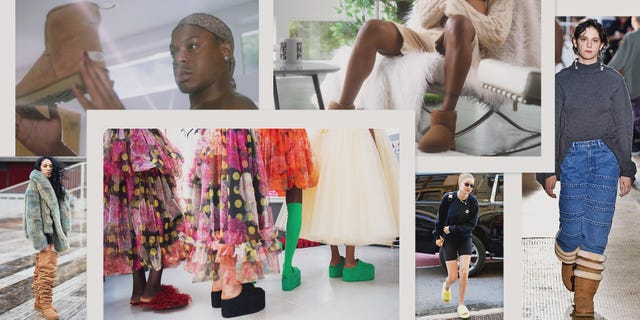
Courtesy of the subject; Hadid: BackgridGetty Images
Style Points is a weekly column about how fashion intersects with the wider world.
When Glenn Martens’s models strode out on the runway, their upper thighs encased in fluffy tan tubelets, the front row did a double take. Were those…could those be…UGGs?
Whatever your associations with the 40-year-old boot company—surfers, early-aughts Pamela Anderson, the heroines of The O.C.—its 2018 collaboration with the avant-garde Paris label Y/Project probably wasn’t one of them. It was as though the ultimate normie footwear had returned from a year abroad at the Royal Academy of Fine Arts in Antwerp— alma mater of Martin Margiela, Demna Gvasalia, and Martens.
“They weren’t expecting it,” says Andrea O’Donnell, president of UGG & Koolaburra by UGG of Deckers Brands, of the reaction from the fashion crowd, “and they certainly weren’t expecting it in Santa Barbara,” where the company is based. “The fashion community engaged with it very quickly,” she says, adding with a laugh, “I think internally within UGG there was quite a lot of consternation.” Since then, UGG has leaned into collaborations with indepeneddesigners, from Eckhaus Latta, which created square-toed versions, to, this season, Telfar, Molly Goddard, and Feng Chen Wang. In fact, a few years ago, “we changed our whole collaboration strategy” to focus on these kinds of labels, she says.
We’re well into an era of intense cross-pollination between luxe brands and meme-worthy shoes: a short, but by no means complete, list would include the notorious Balenciaga Crocs, Opening Ceremony’s linkup with Teva, and countless high-end Birkenstock collaborations from Valentino to Proenza Schouler. This season was no different: Balenciaga’s Vibram toe shoes were one of the most talked-about accessories of spring 2021.
But the designers UGG has chosen to collaborate with tend to be on the indie side of the spectrum, not necessarily household names (unless said household subscribes to i-D). What do they look for? Someone who is “ideally, global, in terms of their reach,” O’Donnell says. “Ideally a catwalk fashion moment in one of the major fashion weeks. Somebody with credibility. We do a lot of homework around how their work is being perceived in fashion publications.” Goddard was chosen because of her “interesting and engaging perspective on femininity,” while Telfar “has really embraced the fact that fashion can be democratic and aspirational at the same time.” The brand is also making forays into the art world with a fall 2020 collaboration with artist Claire Tabouret and by sponsoring the opening weekend of the Hammer Museum’s “Made in L.A.” exhibit.
Once the designers are selected, they’re given, if not complete carte blanche, then something close to it. “We want to make sure the designers have the freedom to express themselves within the context of this story,” O’Donnell says. “Each case is very individual, and we’re kind of looking for that. We don’t want it all to be the same.” That approach extends to the sense of humor woven into the some of the campaigns, from Telfar’s quirky promo images, in which he wears a bedazzled UGG T-shirt or holds a boot aloft like he’s in this Pope Francis meme to the Y/Project campaign that riffed on Greek mythology—if goddesses wore thigh-high UGGs.
The wave of all things cozy and the blurring of lines between work and home is, surely, accelerating this trend towards comfort. But if anything, the success of these kinds of mass indie projects is really about the flattening of categories that is going on in fashion right now. “Normie” footwear can still be worn by normies, but it’s also now acceptable in the domain of self-consciously “cool” people, and everyone in between. UGG boots and slippers are now casually worn by everyone from NBA players in the bubble to Cardi B to Cher to the Hadids to my favorite menswear icon, Shia LaBeouf.
“I think a lot of fashion collaborations attempt to elevate something popular. I am not into high and low as a concept, period.” Telfar Clemens says. And neither, these days, is fashion. Style no longer has to be either democratic or aspirational. Wearing something that other people have and can get feels cool again, whether it’s Timothée Chalamet in “his own Juicy Couture” in GQ or Gwyneth Paltrow sporting Birkenstock Arizona sandals. And in the midst of a recession, the old mode of celebrity excess can feel gauche. (Even Kim Kardashian recently pivoted to tracksuits.)
“There are a lot of conversations in the industry in general about, ‘Are these two things [democratic and aspirational] mutually exclusive or can they ever be mutually inclusive?'” O’Donnell reflects. “The whole world of fashion has been about taking stuff away, making it less available, and making you desire it even more.” But in 2020, that adage, thankfully, no longer holds true.
This content is created and maintained by a third party, and imported onto this page to help users provide their email addresses. You may be able to find more information about this and similar content at piano.io
